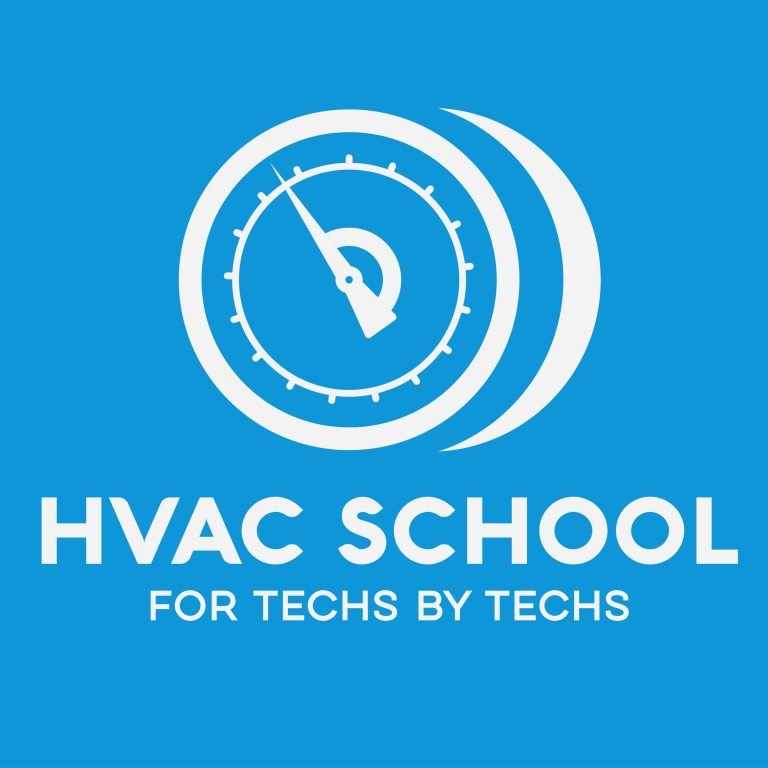Podcasts
Listen and learn while you drive.

BRYAN ORR
Co-Founder and President at Kalos Services, Bryan has been involved in HVAC training for over 13 years. Bryan started HVAC School to be free training HVAC/R across many mediums, For Techs, By Techs.
Subscribe to free tech tips.

Real training for HVAC ( Heating, Ventilation, Air Conditioning and Refrigeration) Technicians. Including recorded tech training, interviews, diagnostics and general conversations about the trade.
Recorded live on the floor at the AHR Expo 2026, this episode of the podcast brings together host Bryan and his guest Jesse, National Training Manager at NAVAC, for a candid, high-energy conversation about professional best practices in the HVAC/R trade. The two have a long-standing friendship and professional rapport that makes the discussion feel both educational and genuinely entertaining. Jesse brings a unique background to the table — from underground coal mining in West Virginia to becoming a lineman, then pivoting to HVAC through vocational school and a contractor-sponsored apprenticeship program. His path to becoming a national trainer is a testament to the value of investing in yourself and being open to learning at every stage of a career.
The core of this episode centers on refrigerant recovery and charging best practices — a topic that might sound routine but quickly reveals how many technicians, even experienced ones, are cutting corners that cost their clients and their companies money. Bryan and Jesse dig into the problems caused by unnecessarily opening sealed systems, the refrigerant lost every time a technician gauges up a system without need, and why the HVAC industry needs to shift its mindset to treat equipment more like a home refrigerator: a sealed system that should run for years without needing to be cracked open. Jesse makes a compelling case that many so-called “mysterious leaks” are actually caused by repeated unnecessary gauge hookups removing small amounts of refrigerant each time.
A significant portion of the conversation focuses on the transition away from manifold gauges toward digital probes and modern recovery setups. Jesse isn’t dismissive of manifolds — he acknowledges their place in the classroom and as a backup tool — but he makes a strong case that eliminating restrictions throughout the recovery and charging process is one of the single most impactful things a technician can do to improve efficiency, protect equipment, and deliver better results for customers. Topics like pulling Schrader cores, using 3/8″ hoses, Rapid-Y fittings, and the importance of using a filter dryer inline with the recovery machine are all covered with practical, field-tested advice.
Bryan and Jesse also tackle some timely and emerging issues facing the industry, including the equalization behavior of R-454B blends and the growing challenge of refrigerant recovery in extreme cold climates as cold-climate heat pumps become more widespread in northern markets. These aren’t hypothetical — they’re problems technicians are encountering right now, and Bryan’s theory about refrigerant fractionation showing up on thermal imaging cameras offers a genuinely fascinating technical angle. The episode closes with Jesse’s overarching message: eliminate restrictions wherever you can, take pride in your craft, and never stop learning.
Topics Covered
Learn more about NAVAC’s products and resources at https://navacglobal.com/.
Have a question that you want us to answer on the podcast? Submit your questions at https://www.speakpipe.com/hvacschool.
Purchase your tickets or learn more about the 7th Annual HVACR Training Symposium at https://hvacrschool.com/symposium.
Subscribe to our podcast on your iPhone or Android.
Subscribe to our YouTube channel.
Check out our handy calculators here or on the HVAC School Mobile App for Apple and Android.



